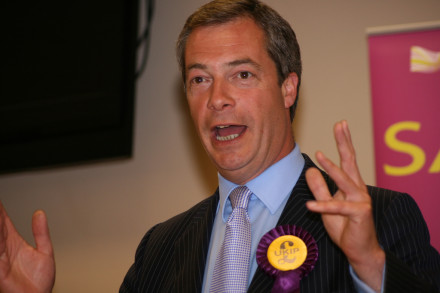
UK politics is gripped by anti-immigration sentiment based on lies, fear and xenophobia. Until recently, too few politicians robustly challenged this hate-filled divisive narrative; implicitly or explicitly telling people that this country simply has too many “foreigners”. Brendan Cox, Jo Cox’s widow, summed up the way politicians have fuelled the flames of division, succinctly writing in a report before she was killed: “petrified by the rise of the populists they try to neuter them by taking their ground and aping their rhetoric. Far from closing down the debates, these steps legitimise their views, reinforce their frames and pull the debate further to the extremes”. If we’re serious about creating a more positive politics and combating hate, this is a trend that has to change. It’s no good parts of the left denouncing xenophobia when Nigel Farage plasters it on a campaign poster but continuing to feed it morsels under the table.
One of the biggest fallacies in UK politics is that immigration is a problem. This is an idea at the forefront of UKIP’s message; whether blaming immigrants for youth unemployment or traffic jams on the M4, Nigel Farage has consistently led the charge against people from abroad. But he isn’t alone in stoking anti-immigration feeling and UKIP don’t exist in a vacuum.
The EU referendum hasn’t unleashed a strain of racism new to UK politics; it’s simply shone a light on, and intensified, what already existed. The Tories have indulged in outright xenophobia when they’ve thought it might benefit them electorally, think: the 1964 Smethwick campaign, Theresa May’s “Go Home” vans, the latest Tory London mayoral campaign and David Cameron’s description of refugees living in Calais as a “bunch of migrants”. Given this history, Steve Hilton’s admission yesterday was hardly shocking: four years ago civil servants told his boss that it was impossible to meet his party’s immigration targets. Nonetheless, the Prime Minister went ahead with plastering this policy in his party’s 2015 manifesto because the message that immigration needed to be reduced is what mattered. The anger it would cause when it turned out impossible to meet did not.
Instead of challenging this narrative, Labour has been guilty of supporting it. Tentative defences of immigration and criticism of Tory campaigns have been laden with caveats. Last year Labour pledged to clamp down on migrant benefits (despite the fact that people from abroad pay in and don’t take out) and promised to “control immigration” – an idea Yvette Cooper raised from the ashes of Labour’s 2015 election defeat last week. Giving in to the swirl of toxic rhetoric going on around them, Labour told the electorate that immigration is a problem. The only catch is, it’s not. I’m not going to rehearse arguments about the benefits of immigration here. Instead it’s time Labour united to do this: to stop treating anti-immigration prejudice as legitimate and start convincing the public that government policy is what’s damaging this country.
It’s far easier to exploit and blame the “other” than it is to change the system. In 2008 the UK was hit by a Western financial crash. The financial elite, who were to blame for this economic catastrophe, escaped largely unscathed while the Conservatives made a conscious decision to implement a package of swingeing cuts. One of the groups blamed for the outcome of all of this? Immigrants. In one breath, mainstream politicians encourage migration when it means cheap labour and demonise immigrants as a threat to UK society to gain power. That was the tactic when black and Asian people migrated to the UK in the 1950s and 1960s and it’s still happening now with a specific focus on people from Eastern Europe. A politics mired in hatred has no positive end point, and while the world is grossly unequal, immigration will remain a fact of life.
We can’t call for a kinder politics one minute and then peddle mistruths about people from other countries the next. As divisions are whipped up across Europe that hark back to the days of the 1930s, a Vote to Remain won’t suffocate the hatred that’s risen in recent years. The political mantra that immigration is a problem needs to be rebutted consistently and loudly for the next four years, at a national and local level.
Voters are not stupid and unreasonable bigots who have unchangeable views; public opinion is always shifting and it’s up to Labour to set out an alternative message. Jeremy Corbyn has made the right decision to unashamedly challenge anti-immigration sentiment in the spirit of Harold Wilson who refused to scapegoat immigrants. It won’t be easy but if we want a less divisive politics then that’s what has to happen.




More from LabourList
New intake Labour MPs: ‘Why we set up the Living Standards Coalition’
Andrew Pakes MP: ‘We need blue-collar Labour, not Blue Labour’
LabourList readers reveal their highs and lows of Labour’s first year